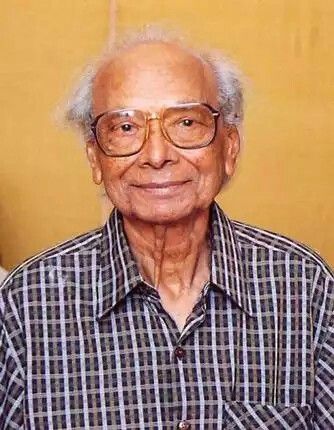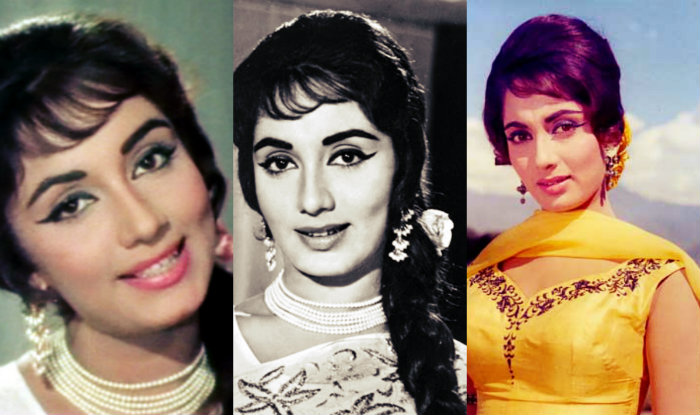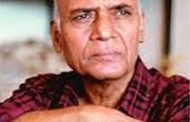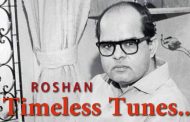In the late 1930s, he came to Bombay to be a success as a musician. But he had to struggle to make it to the top. Initially he faced rebuffs, and had to endure periods of utter deprivation. Naushad even spent nights sleeping on footpaths before he finally secured a job as a pianist in composer Mushtaq Hussain ‘s orchestra. ComposerKhemchand Prakash took him on as his assistant and taught him, an act for which he remained extremely grateful throughout his life. Soon, Naushad got his break with the film Prem Nagar (1940), but it was only with Sharda (1942) that he got attention. The film Ratan (1944) took him right to the top, and from then on he could produce blockbuster songs for appropriately smash hit films, most notably films made by eitherAbdul Rashid Kardar or Mehboob Khan.
Naushad’s style was renowned for his ability to incorporate classical rhythms into his symphonies. He based his music upon the “ragas” that formed a basis in Indian classical music, and thus his music took on complex formations and . His taste for classical music was legendary – in the Mughal musical Baiju Bawra (1952), he used actual classical singers to sing his ghazals. In spite of his classical tendencies, he could also keep up with the times and adapt Western techniques and instruments into his music, as heard in the films Jadoo (1951) and Mere Mehboob (1963). Naushad was also among the first to use the techniques of sound mixing, of separate recording of vocal and music tracks in playback singing, and using background scores to enhance characters’ moods and dialogues through music.
Naushad’s career continued at a steady peak throughout the 1950s and 1960s, with some of his melodies being featured in now-perennial classics like the Mughal period films Baiju Bawra (1952) and Mughal-E-Azam (1960) and the epic Mother India (1957). Unfortunately and to his distaste the times were changing and demanded more fast-paced, peppier tunes, and Naushad had to struggle to keep his music pure and classical. In fact for Saathi (1968), he was persuaded, against his will, to re-record two of his songs to pep up their pace and their appeal. It was due to this uncompromising attitude towards his music that he would only compose less than a hundred films in his lifetime.
In the 1960s, he composed for Dilip Kumar ‘s dacoit drama Gunga Jumna (1961), which became a smash hit in India. However, both Kumar’s and Naushad’s days were numbered, and as their films came unstuck at the box-office, their fortunes dwindled. Naushad was still held in high regard, but he was now given mostly period films, most notably the courtesan romance Pakeezah (1972). However, he still gave his all in his efforts and he continued composing for films right through to the 1990s. He received the Dhundiraj Govind Phalke Award in 1981 for his lifetime contribution to Bollywood cinema and in 2004, when Mughal-E-Azam (1960) was re-released in colour, he was on hand along with Dilip Kumar – to attend the premiere and revive their days of glory.In early 2006, Naushad was admitted to Ninavati Hospital after complaints of uneasiness, and on 5 May 2006, he died of old age. His last film, Taj Mahal: An Eternal Love Story (2005), while receiving mixed reviews, was greatly praised for its musical score. Even in today’s fast-moving world, people still found something special in his music. Such is the hallmark of a truly great composer…He often spent nights sleeping on the footpath opposite the Broadway theatre in Bombay, and dreamt of seeing his music played over there. Sixteen years later, he burst into tears at the premiere of Baiju Bawra (1952), at that same theatre. Naushad used to study every aspect of his tunes thoroughly. If he wasn’t satisfied with even one word, he would ask the lyricist to rewrite the whole line. He would take a fortnight to compose a single song and often composed music for just two films a year.
He composed the tunes of Taj Mahal: An Eternal Love Story (2005) at the age of 86, thus becoming the world’s oldest composer.Composer Khemchand Prakash took him on as his assistant, for which he remained extremely grateful and in interviews Naushad has called him his guru.
While he did less than a hundred films during his lifetime, 26 of those films went on to celebrate jubilees. Out of those films, eight of them went on to celebrate golden jubilees and four of them diamond jubilees.Son Rehman Naushad is a actor and director.
In my 62 years in the film industry, I composed music for 66 films. These days, you come across people who have done the music 200 films in two years. What I’m saying is that, we used to agonise over every tune and phrase in music, spend sleepless nights over a song, and work on it until it was perfected. And I am still looking for that perfection.We must change with the changing times, but should not lose connection with the roots.







